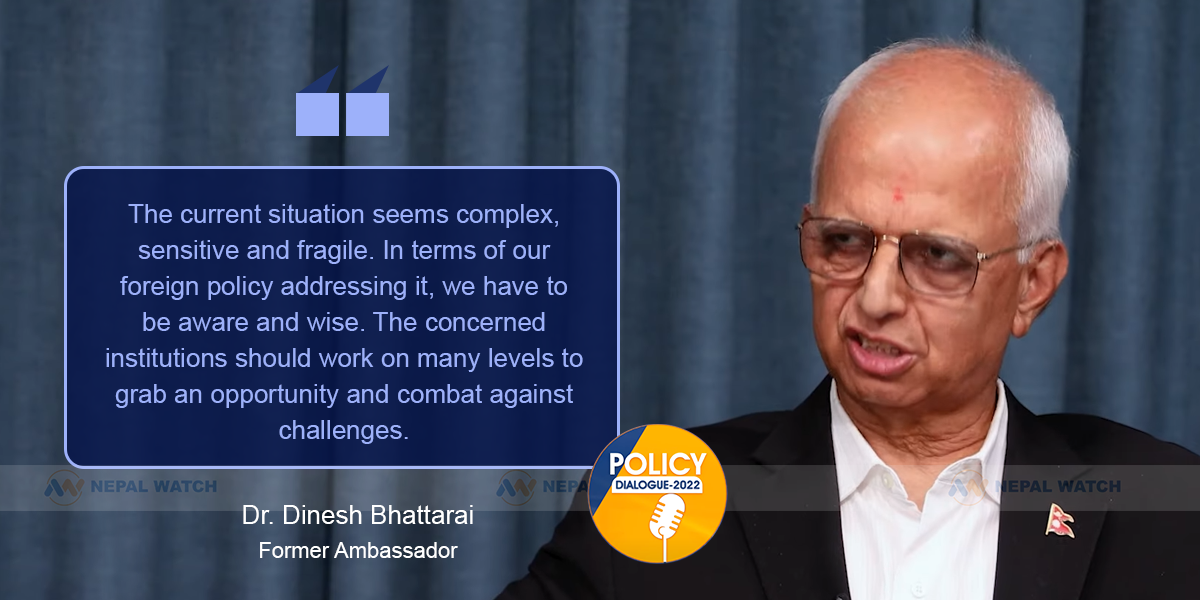The Link Between Obesity and Heart Disease

Kathmandu- A few years ago, overweight individuals were often considered healthy and well-fed, while thin people were viewed as sickly. However, this perception has changed over time. Nowadays, most people are becoming increasingly aware of the health risks associated with obesity and are actively working to avoid it. More individuals are now conscious of the potential health risks that obesity can cause, and it is increasingly being recognized as a gateway to various diseases, especially heart conditions.
Obesity is a condition that can lead to a range of diseases, sometimes even resulting in death, and heart disease is one of the major risks. Heart disease includes conditions like heart attacks, heart failure, sudden death, angina, and arrhythmia. Obesity is typically defined by a Body Mass Index (BMI) of 25 or higher. People with higher BMI are more likely to suffer from hypertension, increased cholesterol levels, and other heart-related issues. Furthermore, obesity raises harmful cholesterol levels and lowers good cholesterol, leading to blockages in blood vessels, making it difficult for the heart to pump blood effectively. Therefore, obesity is directly linked to heart disease.
Obesity as a Global Health Issue
Obesity is increasingly being recognized as a long-term, chronic disease worldwide. In Europe and America, obesity has become a major health concern, with many countries experiencing an increase in the number of obese individuals due to unhealthy lifestyles. Poor diet, excessive eating, and lack of exercise are some of the leading causes of obesity. Additionally, genetic factors or underlying health conditions can also contribute to obesity.
According to studies, 15% of women and 11% of men globally suffer from obesity, and the rate of obesity is rising. In Nepal, obesity has also become a growing health issue. In 2013, 21% of the country’s population was found to be obese, and by 2019, this number had increased to 29%. Despite this, Nepal remains among the countries with lower obesity rates. The World Health Organization (WHO) study reveals that 35% of women, 6% of adolescents, and 3% of children under five in Nepal are obese. Among the provinces, Bagmati Province has the highest obesity rate.
The Risks of Obesity
Obesity contributes to an alarming number of premature deaths worldwide, with approximately 300,000 people dying annually due to obesity-related complications. According to the World Health Organization, obesity ranks as the fourth leading cause of death after high blood pressure, tobacco use, and poor eating habits. The greater the body weight, the higher the risk of early death. Individuals with a BMI of over 30 face a 50% to 100% greater risk of premature death compared to those with a normal BMI.
A study found that even a five-kilogram increase in body weight among individuals aged 30 to 64 increases the likelihood of premature death and heart attacks. Obese individuals also face a higher risk of hypertension, diabetes, and high cholesterol. Among people with diabetes, approximately 80% are overweight or obese.
Obesity and Cancer Risks
Obesity is also linked to various cancers, including breast cancer, uterine cancer, colorectal cancer, gallbladder cancer, kidney cancer, and prostate cancer. Obese women are twice as likely to develop breast cancer as those with a normal weight. Obese individuals are also at a higher risk of sleep apnea, snoring, and other respiratory issues, which can affect the heart. Furthermore, joint pain and other mobility issues increase with obesity, leading to a higher risk of conditions like osteoarthritis.
For women, obesity can also lead to complications during pregnancy, including a higher maternal and infant mortality rate, gestational diabetes, and the birth of children with congenital diseases. Obesity also increases the likelihood of gallbladder disease, urinary incontinence, surgical complications, and depression.
How to Prevent Obesity and Heart Disease
Obesity is a major risk factor for heart disease, but it can be controlled. By managing obesity, individuals can reduce their risk of heart disease, diabetes, high blood pressure, and high cholesterol. To prevent heart disease, it is crucial to focus on maintaining a healthy weight, adopting a healthy lifestyle, and making dietary changes. Daily exercise, stress management, and avoiding a sedentary lifestyle are key components.
Obesity is often a result of a poor lifestyle, which includes overeating, consuming excessive fats and sugars, eating unhealthy foods, drinking alcohol, smoking, and spending too much time on devices like TV and mobile phones. To combat obesity, it is important to maintain a regular sleep schedule, reduce stress, and avoid overeating.
A balanced diet that includes a proper mix of proteins, carbohydrates, and fats is essential for maintaining a healthy weight. Reducing carbohydrates and increasing protein intake can help. Avoid sugary foods, cakes, and ice cream, and aim for regular exercise or yoga. Consuming fruits, vegetables, and walking as much as possible can also help in controlling weight. Additionally, try to avoid eating after sunset, and make sure to have three to four meals throughout the day, eating in moderation.
By adopting these healthy habits, it is possible to reduce the risks of heart disease and other obesity-related health problems.
(This article is based on an interview with Dr. Abani Bhushan Upadhyaya, a senior cardiologist and author of the book Manchheko Mutu.)
Trending
Related News
Latest
-

Riddara RD6 EV Pick Up Launches Exchange Offer In Nepal
-

Shop More, Save More with Daraz Nepal’s 5.5 Best Price, Best Deals
-

Unveiling the Galaxy S25 Ultra 1TB: Samsung’s Tera-fic New Flagship Variant Kicks Off the New Year with Unprecedented Storage Power
-

UK announces £10 million for Myanmar quake relief
-

World Bank Approves financing package of 150 Million USD to Nepal














